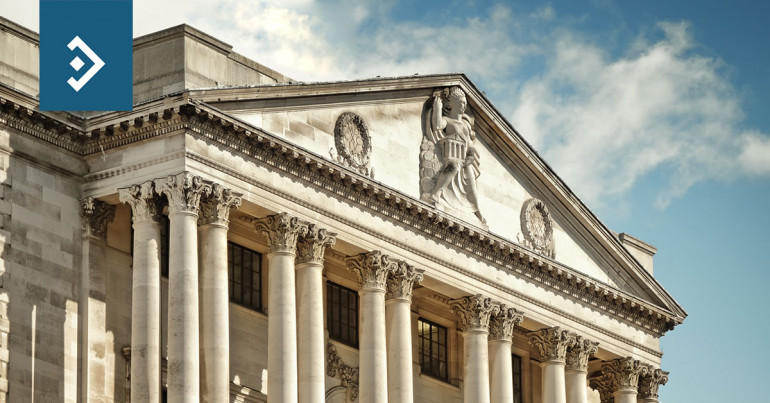
Bank plans hike and bond sales
Morning mid-market rates – The majors
20th July: Highlights
- Then there were three
- Housing starts feeling the effect of FOMC action
- Ghosts of Crises Past beginning to rise
GBP – Bailey provides significant advance guidance
This will be the biggest move in twenty-seven years, but Bailey is determined to show how serious he is in trying to bring inflation back to the Government’s two percent target.
He believes that it is the absolute priority to bring it under control, and that this is the largest challenge since the Bank was granted independence by then Chancellor of the Exchequer, Gordon Brown.
The bank is facing the same dilemma as the ECB and to a certain extent the FOMC.
While raising rates will quell demand, which is the traditional manner in which Inflation is tackled, it is only in the supply side of the economy that headline inflation is being mostly seen.
The issue with driving demand lower, it could easily push the economy into recession while inflation continues to rise due to a series of external issues.
The most prominent of these for the UK is the continued rise in household energy bills. This was exacerbated by the exponential rise in the wholesale price of gas which began early in 2021 and has been exacerbated by the conflict in Ukraine.
The conflict has also led to shortages of several staple foodstuffs.
The price of oil, which is beginning to level off, has seen the price for both commercial and domestic users of petrol for their vehicles reach close to and even slightly above two pounds per litre.
Finally, Brexit remains an issue to supply chains, which has led to shortages and rising costs.
While Bailey’s new-found hawkish comments will be well received, he and his colleagues face an extremely difficult task to bring inflation back to target in the medium and possibly even the longer term.
The race to be the Leader of the Conservative Party will reach its next stage later today as the two final candidates are chosen. While one is fairly certain in Rishi Sunak, who has led the polling at every stage, the other is less clear.
Foreign Secretary Liz Truss, the champion of the right of the Party, is closing in on the Trade Secretary Penny Morduant. Both women have called for a clean final vote with Sunak supporters told to not become involved in an effort to have their man face Morduant who is seen as less able to beat Sunak.
Sterling remains in recovery mode, having reached a high of 1.2045 yesterday. If faces some resistance around this level which attracted some selling and it fell back to close at 1.1992
Recommend our services and earn up to £75 per successful referral
USD – Need a reason? Take your pick
Biden was never going to be the type of President who was on TV screens every day, promising to Make America Great Again, or threatening its trading partners with sanctions or tariffs to bend them to his will.
While it is hard to recall many of Trump’s Cabinet due to his overbearing manner and demand that he has a finger in every pie, Biden has created a far more executive Administration.
His issue has been that several of his choices have not been up to the task, leaving him exposed to a Congress in which Democrats are fearing something of a Republican whitewash at the midterm elections taking place in November.
The rise in inflation that was initially ignored by the Federal Reserve has brought criticism down on Biden, mostly for the fact that he retained Trump’s Fed President, while promoting his predecessor, Janet Yellen, to Treasury Secretary.
Trump was a big business President, which is always the manner of a Republican, while Biden has tried to portray the image of a man of the people.
His calm demeanour has not really fit with the job in hand as the nation has emerged from the Pandemic, during which time the generosity of his support for those furloughed from their jobs has been criticised as being Un-American.
While the first half of the Biden Presidency has dealt mostly with firefighting, first with the effect of the Pandemic, and then dealing with the country’s recovery.
The second will be more about fighting for his political life and legacy, if, as expected, the Republican Party makes a recovery in the midterms.
Data was released yesterday which showed that the housing market is beginning to cool. Building permits were virtually unchanged from the previous month, while housing starts fell both from the previous months, and also versus the market’s expectations.
There remains confidence in several areas that the economy is not heading for a recession, but the evidence is beginning to point back in that direction.
The FOMC has a considerable time to wait until it meets again following next week’s meeting. It won’t want to be seen as falling further behind the curve. This brings the possibility of a one-hundred basis point hike into the discussion, although a further seventy-five points is far and away the most likely move.
The correction that has been seen recently in the dollar index continued yesterday. As mentioned recently, the deeper this correction is, the more likely that it will have the momentum to reach and possibly exceed the 110 level on its next bout of strength.
It fell to a low of 106.38, closing at 106.70.
EUR – Outside influences being battled with domestic policies
As has been seen in the UK, the roots of rising inflation are seen in external factors, which, no matter the actions taken by the Central Bank, prices will continue to rise in the short to medium term.
With a conflict raging on its borders, which shows no sign of abating, and with the aggressor reacting to sanctions by threatening to cut off the supply of gas to the region, it is impossible to see a recession being avoided.
There was a comment made in the German press recently which, while not totally accurate, summed up the problem facing the Eurozone’s largest economy.
It was written that without gas this winter, Germans will need to return to burning wood in order to keep warm.
Yet, during this significant downturn for the Eurozone economy, the ECB is on the cusp of hiking interest rates. This will doubtless not be the only hike and, in time, it will dampen down demand but, as the year nears its end, that may not be the issue.
Just as Christine Lagarde has apparently created tools to ensure that the spread i interest rate between German Government Bonds and those of the most indebted nations doesn’t widen too far, her team will need to find policies that improve supply, but that may prove to be beyond them.
The size of the hike that will be announced at tomorrow’s ECB meeting remains in doubt. Both a twenty-five-point hike and fifty points remain on the table, with both having their merits.
Economists are questioning how effective even a fifty-point hike can be on a rate of inflation that averages 8.6% across the region, with some nations experiencing price rises that are well into double figures versus a year ago, remains to be seen.
The eurozone has, yet again, set itself on a course that could precipitate another crisis, primarily by sticking to its now outmoded and probably outdated mantra that one size fits all.
The euro continues to put a degree of distance between it and parity versus the dollar. Yesterday, it reached a high of 1.0269, closing at 1.0226.
A challenge to the resistance at 1.0275 may be seen now, although it is possible that traders may become wary of buying the single currency at what are currently such elevated levels, particularly ahead of tomorrow’s meeting which will also contain a degree of advance guidance.

About Alan Hill
Alan has been involved in the FX market for more than 25 years and brings a wealth of experience to his content. His knowledge has been gained while trading through some of the most volatile periods of recent history. His commentary relies on an understanding of past events and how they will affect future market performance.”



